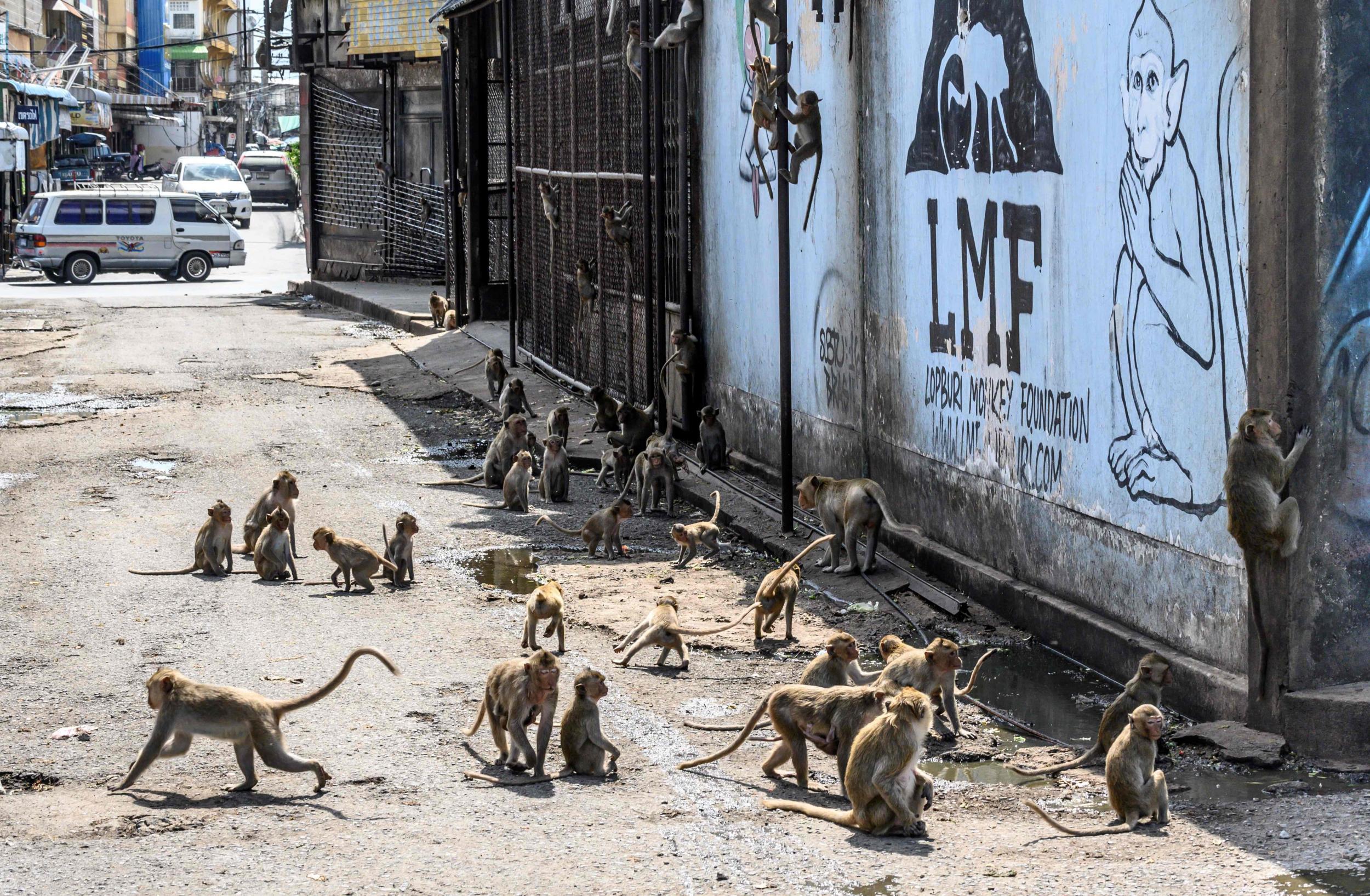Thai vets perform mass sterilisation on violent monkey population in ancient city
Authorities hope to perform operation on 500 animals over next two months

Your support helps us to tell the story
From reproductive rights to climate change to Big Tech, The Independent is on the ground when the story is developing. Whether it's investigating the financials of Elon Musk's pro-Trump PAC or producing our latest documentary, 'The A Word', which shines a light on the American women fighting for reproductive rights, we know how important it is to parse out the facts from the messaging.
At such a critical moment in US history, we need reporters on the ground. Your donation allows us to keep sending journalists to speak to both sides of the story.
The Independent is trusted by Americans across the entire political spectrum. And unlike many other quality news outlets, we choose not to lock Americans out of our reporting and analysis with paywalls. We believe quality journalism should be available to everyone, paid for by those who can afford it.
Your support makes all the difference.Thailand has decided to sterilise hundreds of monkeys in a city north of Bangkok, after the animals became hungry and aggressive amid a lack of tourists.
Thousands of macaques, which live in the ancient city of Lopburi, are usually reliant on visitors to feed them, but this food source dried up after Thailand decided to shut its borders to tourists on 4 April to stem the spread of Covid-19.
Since then, the monkeys have struggled to fend for themselves, becoming violent towards each other as well as humans in their search for food.
A video showing hundreds of monkeys brawling in the city went viral on social media in March.
Supakarn Kaewchot, a government vet, said: "They're so used to having tourists feed them and the city provides no space for them to fend for themselves,"
She added: "With the tourists gone, they've been more aggressive, fighting humans for food to survive. They're invading buildings and forcing locals to flee their homes. "
Some of the animals are reportedly living in an abandoned cinema, while a nearby shop owner has set up stuffed crocodile and tiger toys in a bid to stop them stealing cans of spray-paint from their store.
To tackle the growing problem, authorities have positioned large cages with fruit inside them around the city. They hope to catch around 300 monkeys, which will then undergo sterilisation.
After they are sedated, they are shaved and given a tattoo with a unique reference number under their arms.
The captured macaques will then spend one night recovering from the operation, before they are returned to their respective tribes.
In total, the government aims to perform the operation on 500 monkeys over the next two months.
Ms Supakarn said the decision to sterilise them did not threaten their population but would allow authorities to reduce its rate of growth. "We're not doing this in the wild, only in the city areas, " she added.
Additional reporting from Reuters
Join our commenting forum
Join thought-provoking conversations, follow other Independent readers and see their replies
Comments